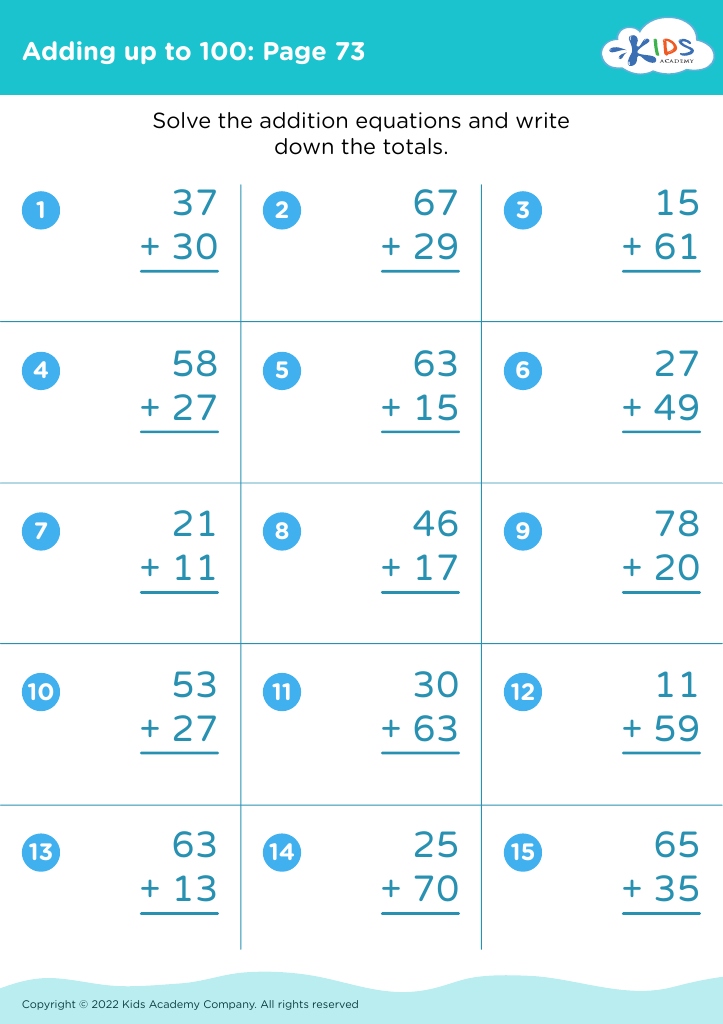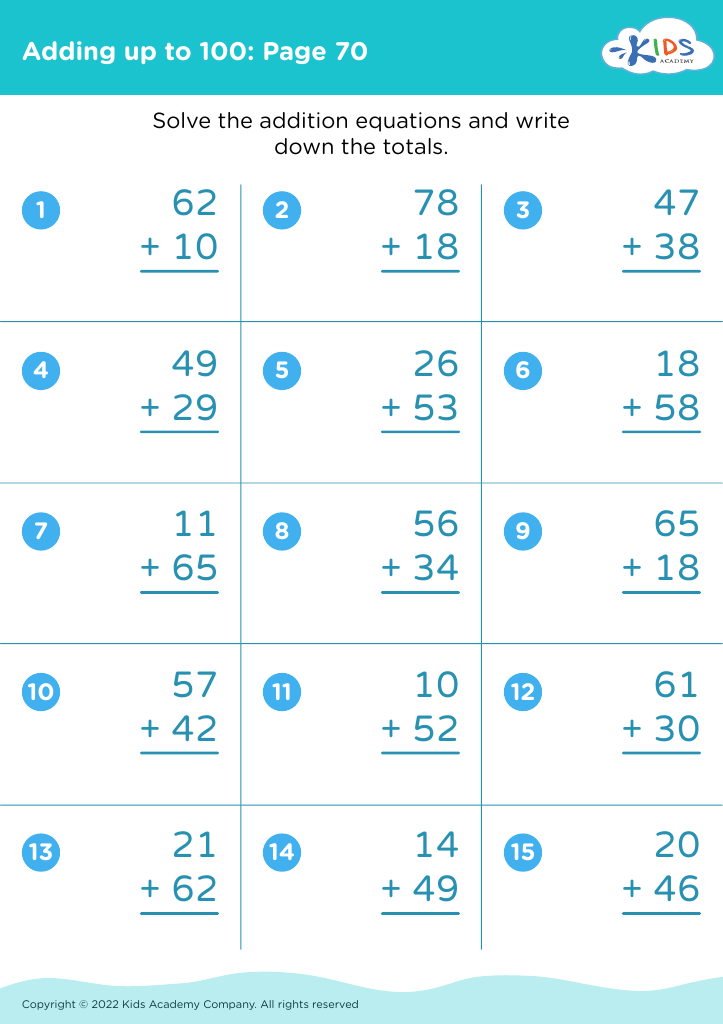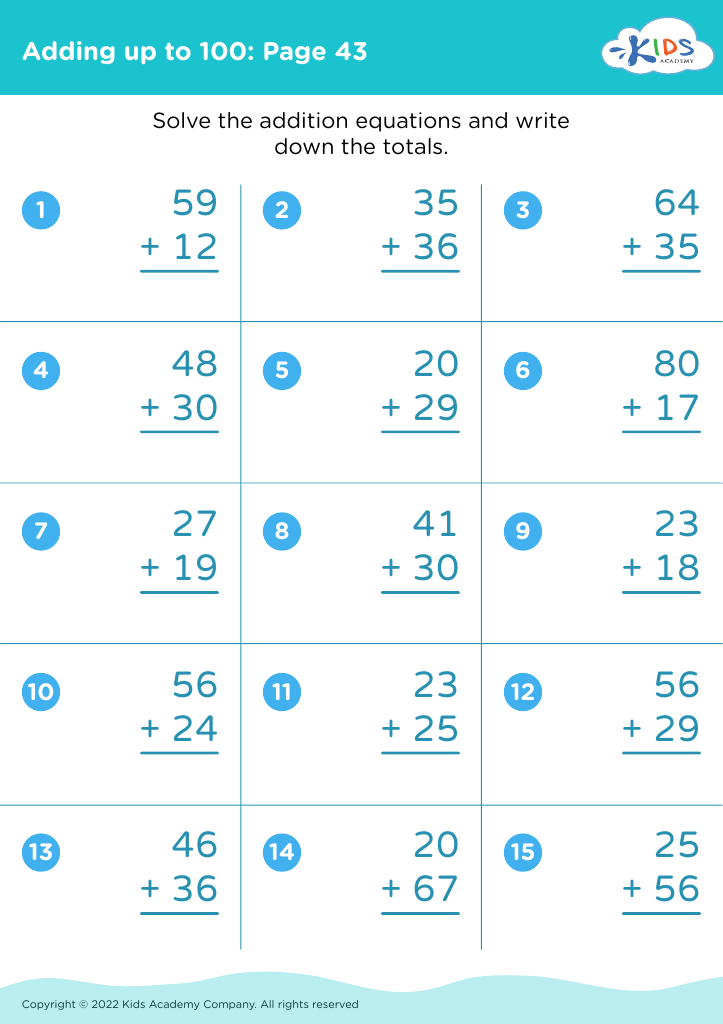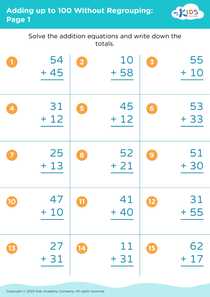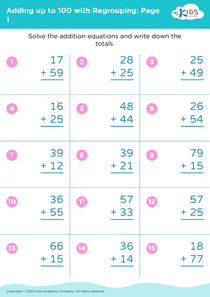Counting practice Grade 2 Adding up to 100 Misc Worksheets
4 filtered results
-
From - To
Welcome to our Counting Practice for Grade 2! This collection of miscellaneous worksheets is specifically designed to help students master addition skills, reinforcing their ability to add numbers up to 100. Each worksheet includes engaging and diverse activities that make counting fun and interactive. From simple sums to word problems, these exercises aim to build confidence and enhance mathematical understanding. Ideal for classroom settings or at-home learning, these worksheets cater to various learning styles, ensuring every child makes progress. Explore our resources today and watch your young learners thrive as they become adept at adding and counting with ease!
Counting practice, particularly for Grade 2 students, is a foundational skill crucial for developing mathematical proficiency. Parents and teachers should prioritize this practice as it lays the groundwork for more advanced concepts. In Grade 2, students often start exploring addition and subtraction within 100, and consistent practice helps reinforce their number sense.
Understanding how to add numbers up to 100 facilitates problem-solving abilities needed in everyday life. It encourages critical thinking and enhances confidence when tackling math challenges. Moreover, being proficient in counting and basic arithmetic fosters a positive attitude toward mathematics, helping to alleviate math anxiety that some children may experience.
Additionally, counting practice encourages fine motor skills through writing numbers and improves focus and perseverance as students work on various problems. Collaborating with parents or engaging in fun activities, such as counting games or math puzzles, can make practice enjoyable and enhance the learning experience.
Ultimately, reinforcing these skills creates a solid educational foundation that will benefit students as they progress academically and prepare for future mathematical challenges. Investing time in counting and arithmetic practices now promises long-term advantages essential for their overall educational journey.
